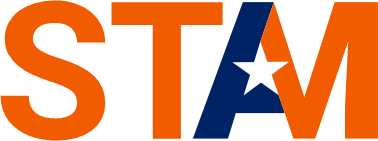In the ever-evolving landscape of real estate, aspiring homeowners are often faced with a myriad of financing options. One such option that stands out for its accessibility and benefits is the FHA loan. Designed to assist first-time homebuyers and those with moderate incomes, FHA loans have become a cornerstone in the path to homeownership. In this comprehensive guide, we’ll delve into the ins and outs of FHA loans, exploring their advantages, eligibility criteria, application process, and much more.
Understanding FHA Loans
What is an FHA Loan?
FHA, or Federal Housing Administration, loans are mortgage loans backed by the government. Established in 1934 during the Great Depression, the FHA aimed to stimulate the housing market by providing accessible mortgage insurance to lenders. This insurance protects lenders in case borrowers default on their loans, making it easier for individuals with lower credit scores or limited financial resources to qualify for a mortgage.
Advantages of FHA Loans
- Low Down Payment: One of the most significant advantages of FHA loans is the low down payment requirement. With just a 3.5% down payment, compared to the 20% typically required for conventional loans, FHA loans make homeownership more attainable for a broader range of individuals.
- Flexible Credit Requirements: FHA loans are more forgiving when it comes to credit scores. While conventional loans may demand higher credit scores, FHA loans are accessible to individuals with credit scores as low as 580.
- Attractive Interest Rates: FHA loans often come with competitive interest rates, making them an appealing option for borrowers looking to secure affordable financing.
- Assumable Mortgages: Another unique feature of FHA loans is that they are assumable. This means that if you decide to sell your home, the buyer can take over your FHA loan, potentially providing a selling point in a competitive market.
FHA Loan Eligibility
Who Qualifies for an FHA Loan?
FHA loans are not exclusive to first-time homebuyers, contrary to popular belief. Eligibility is based on various factors, including:
- Credit Score: While a credit score of 580 or above is ideal, those with scores between 500 and 579 may still qualify with a higher down payment.
- Debt-to-Income Ratio: Lenders typically look for a debt-to-income ratio of around 43% or lower.
- Steady Employment: A consistent employment history is crucial for FHA loan approval.
The FHA Loan Application Process
Steps to Secure an FHA Loan
- Pre-Approval: Begin by getting pre-approved for an FHA loan. This involves submitting financial information to a lender, who will assess your eligibility and provide an estimate of the loan amount you qualify for.
- Find an FHA-Approved Lender: Not all lenders offer FHA loans, so it’s essential to work with an FHA-approved lender. These lenders are well-versed in the FHA loan process and can guide you through the application.
- Document Submission: Gather necessary documents, including proof of income, employment history, tax returns, and information about any debts you may have.
- Property Appraisal: An FHA-approved appraiser will assess the property you intend to purchase to ensure it meets FHA standards. This is a crucial step in the process.
- Underwriting and Approval: The lender will review your application, including the appraisal, to determine whether to approve the loan.
- Closing: Once approved, you’ll attend the closing, sign the necessary documents, and officially become a homeowner.
FHA Loan Pitfalls and Considerations
While FHA loans offer numerous advantages, it’s essential to be aware of potential pitfalls. These include:
- Mortgage Insurance Premiums (MIP): FHA loans require both an upfront and annual mortgage insurance premium, adding to the overall cost of the loan.
- Property Standards: FHA appraisals come with strict property standards. If the home doesn’t meet these standards, certain repairs may be required before closing.
- Loan Limits: FHA loan amounts are subject to maximum limits, which can vary by location. It’s crucial to be aware of these limits when considering properties.
Conclusion
In conclusion, FHA loans stand as a beacon of hope for individuals aspiring to achieve homeownership but facing financial constraints. By offering a low down payment, flexible credit requirements, and government-backed assurance, FHA loans have empowered countless individuals to turn their homeownership dreams into reality.
As with any financial decision, it’s crucial to weigh the pros and cons and consult with knowledgeable professionals. With the right information and guidance, an FHA loan can be a stepping stone toward the home you’ve always wanted. Unlock the door to your dream home with the accessibility and advantages of an FHA loan.
